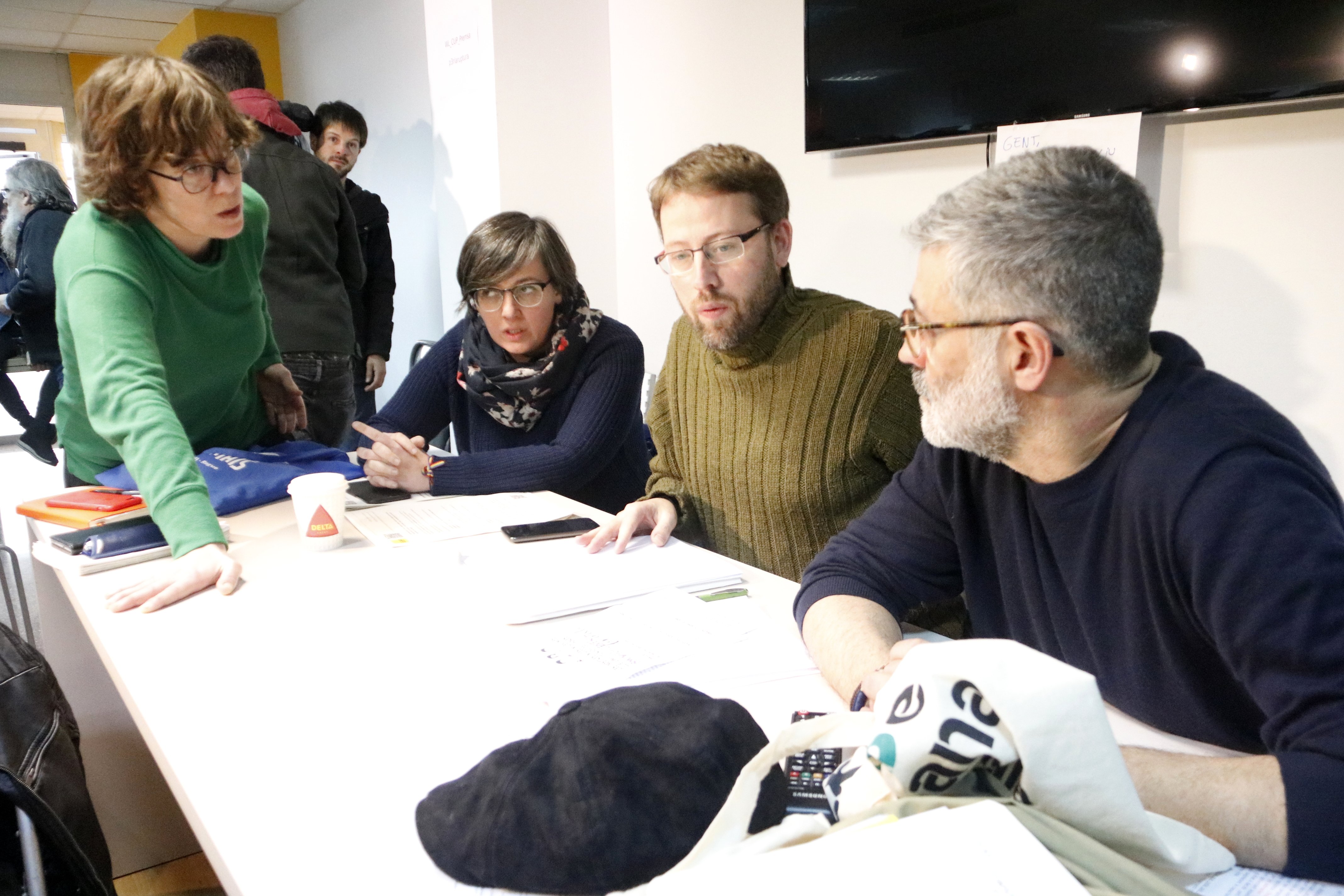Catalonia's CUP party, the smallest of the three pro-independence groups in the Catalan parliament, has decided not to support the agreement reached for investiture of Jordi Sànchez as new Catalan president by the other two groups, Together for Catalonia (JxCat) and the Catalan Republican Left (ERC). The four parliamentary deputies of the far-left CUP, or Popular Unity Candidature, will thus abstain in the event that a vote takes place on the new proposed candidate Sànchez. The CUP's Political Council made this decision on Saturday morning after considering the new JxCat proposal, which has arisen after the latter group announced that Carles Puigdemont would temporarily step aside and his number two, the imprisoned Jordi Sànchez, would be the group's new candidate. However, sources on the CUP council assure that they did not discuss the name of any other candidate.
The CUP group had already expressed its discontent with Puigdemont's decision to provisionally withdraw as a candidate, as in their opinion, this is at odds with the goal of restoring the Catalan government dismissed by the Spanish executive when it imposed direct rule on Catalonia.
No to acquiescing to Spanish legality
The main motive behind the CUP's decision to abstain in a hypothetical investiture vote on Sànchez as candidate for president is, they say, because it implies returning to Catalonia's former status as an autonomous region of Spain, and acquiescing to Spanish legality and the decisions of the Constitutional Court, which, according to the left-wing group, would not allow Catalonia to develop its own social and taxation policies. They therefore announced their radical opposition, to the imposition of articles 155 and 135 of the Spanish constitution and the regime of autonomous communities. They also asserted that both Carles Puigdemont and Toni Comín - Catalan minister who is also in Belgian exile - possess all the requisites to be able to vote in Parliament.
According to the CUP, a push to invest Jordi Sànchez as Catalan president would be a violation of the popular mandates received both in the independence referendum on October 1st and in the election on December 21st, since the people of Catalonia voted for Carles Puigdemont to be president, not anyone else. At the same time, this hypothetical investiture would imply another retrograde step in the independence process, they say. If forward progress in the construction of the Catalan republic is not made, say the party sources, it means that the process is going backwards, and they have recalled that it was the CUP which in past years vetoed the re-appointment of Artur Mas as Catalan president and also voted against the Catalan government's budget proposals.
The left-wing group left it clear that they do not want to negotiate within a framework based in acceptance of Catalonia's status as a mere autonomous community of Spain, and that they do not intend to renounce the Catalan republic and its legality. And that, therefore, the CUP will not discuss or negotiate any proposal outside this framework. It is not a question of names, they say, but rather of continuing with a clear political project to materialize the Catalan republic.

